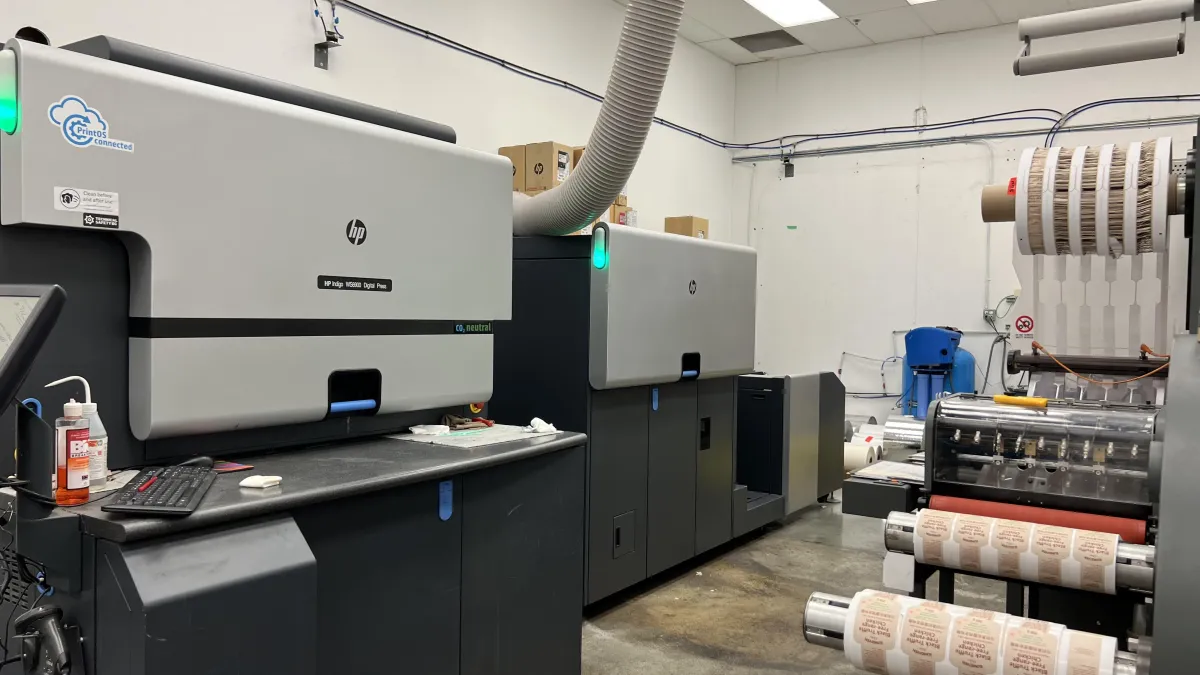
Digital vs. Flexo Printing - What Every Brand Needs to Understand
In the label printing world, two main technologies dominate: digital printing and flexographic (flexo) printing. Both have strengths. Both have limitations. And if you’re ordering labels for your business, knowing which to choose can save you time, money, and headaches.

Speed and Flexibility: Digital’s Superpowers
Digital printing is the fast food of printing: quick turnarounds, on-demand changes, and the ability to handle multiple SKUs without stopping the press. “If you’ve got 25 different SKUs for a 50,000-label order, digital is the way to go,” says Westkey Xibita Label Press operator Anton Concepcion. “We can swap images on the fly without downtime.”
This flexibility makes digital ideal for:
Perishable products needing fast delivery to shelves
Short-run or variable data jobs
Rapid design changes without costly new plates
Flexo: The Workhorse for Long Runs
Flexographic printing, on the other hand, shines in long-run, single-SKU jobs. Once it’s set up, it can run large quantities with remarkable consistency and at a lower cost per label for high volumes.
“Think of digital as a Ferrari 458 Italia - perfectly tuned for speed and agility,” Anton says. “Flexo is a Greyhound bus - it's built to carry a lot over long distances.” You wouldn’t race the bus, and you wouldn’t use the Ferrari for a cross-country passenger haul.
Quality: Not the Deciding Factor It Once Was
Thanks to improved plate technology and skilled operators, flexo can now match digital quality so closely that most people couldn’t tell the difference, if the job is done right. That said, digital still wins when it comes to quick, precise colour tweaks mid-run.
Special Effects and Finishes
Digital presses pair beautifully with modern finishing equipment like laser cutters for custom shapes and metallized substrates for foil effects. Flexo can achieve similar looks, but often with slower processes like hot foil stamping.
Choosing the Right Method
Go digital if: You have multiple SKUs, need fast turnaround, or want to test designs.
Go flexo if: You have a large, consistent order with minimal design changes.
For many brands, the best approach is a hybrid strategy: using digital for short runs and product launches, then switching to flexo for large-scale reorders.
Bottom Line:
Understanding the strengths of each printing method helps you match your production to your business needs - so your labels look great, arrive on time, and cost what they should.
